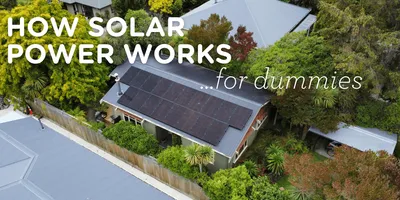How to reduce energy use during times of peak demand
10/03/2019

Because Ecotricity gives you control and visibility over how you pay for electricity, you’ll have noticed that certain times of day – when the load on the national grid is heaviest – the cost of electricity goes up. This is because more people are using power at this time, and so it costs more to supply them.
In New Zealand, peak demand is usually between 4-8PM. This is when people come home from work, cook dinner, watch TV, use their computers, do household chores, and turn lights on as the sun goes down.
You can reduce your electricity use during peak times and lower your power bill. There are many simple lifestyle changes you could make. Even adopting one or two from the list will help reduce your electricity use during peak times. Try:
- Setting you air conditioner (if you use one) to 25 degrees Celsius. This is the most energy efficient temperature. Use a smart thermostat to reduce usage during the peak demand.
- If possible, dispense with the air con/heat pump altogether. Try opening a window, closing the blinds, or adding or removing clothing.
- Only light/heat the room you’re using.
- Instead of running the dishwasher immediately after dinner, put it on later in the evening, before you go to bed.
- When replacing old appliances, choose energy efficient models.
- Turn appliances off at the wall when you’re not using them.
- Turn off the TV while you’re cooking dinner. You could listen to a podcast on your phone instead.
- Shower in the morning or later in the evening.
- Change up your routine so tasks like ironing, vacuuming, and laundry are done outside of the peak demand.
- If possible, avoid charging your electric vehicle until after the end of the peak period.
- Get the whole family involved. If you have kids, you can make it a game to use as little power as possible.
These may seem like small changes, but these little choices add up. You’ll notice the difference in your power bill. Talk to Ecotricity if you’d like more information on peak demand and how to get more control over your power bill.







